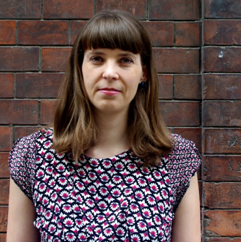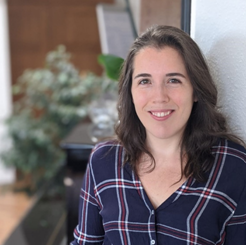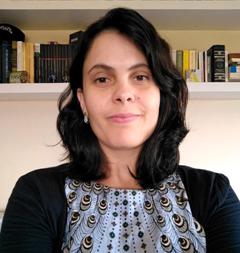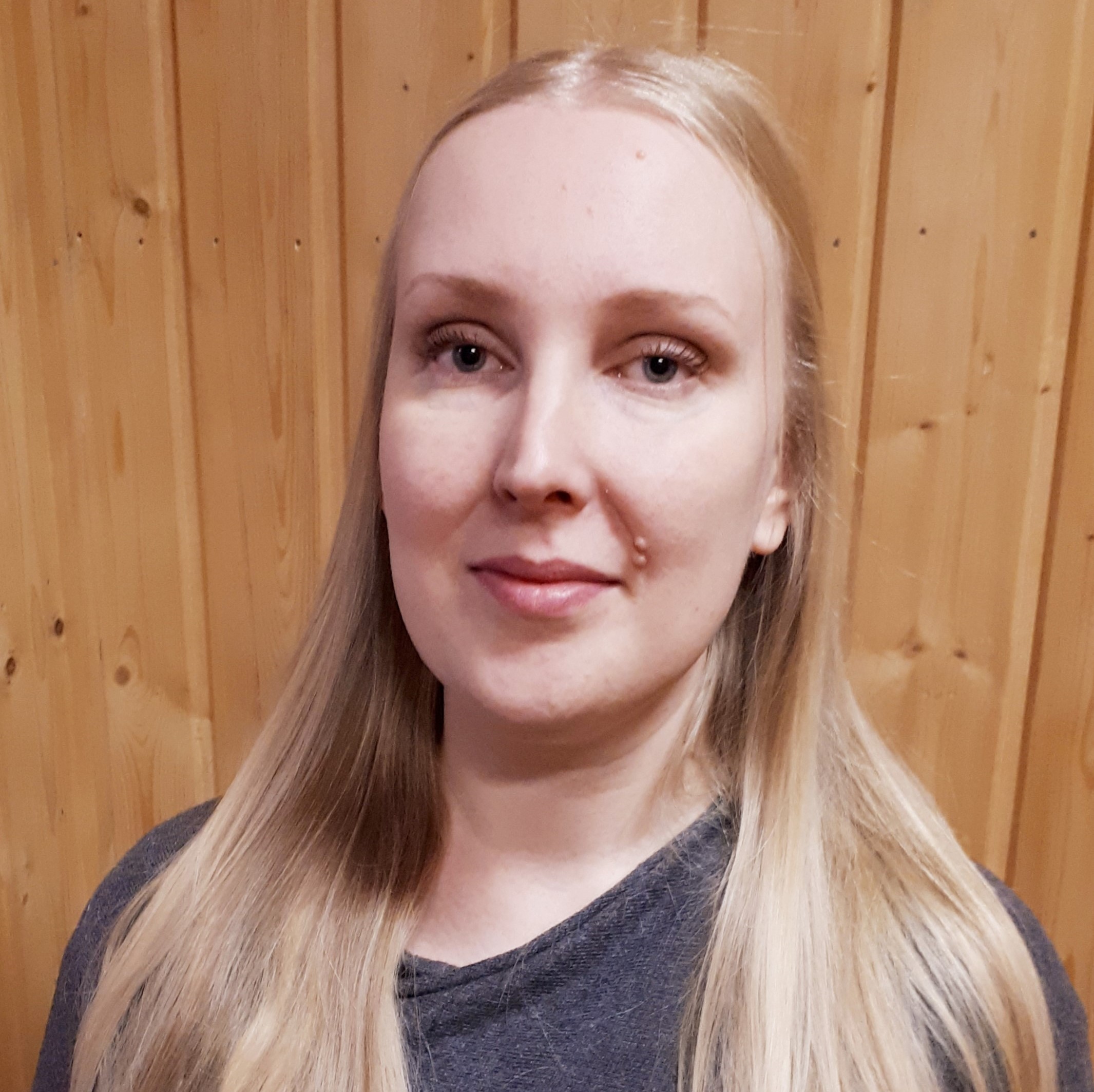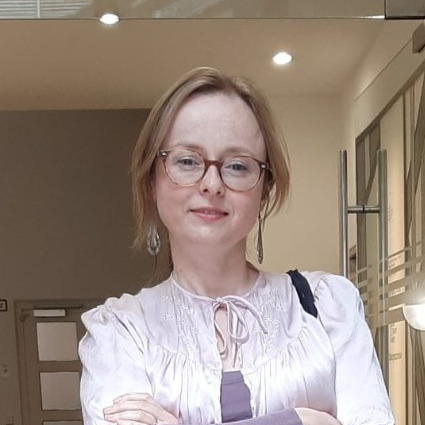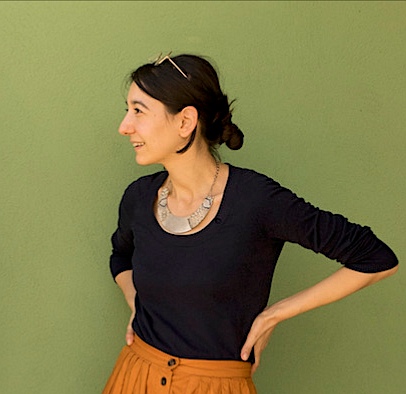-
Noémi Ujházy is a historical and environmental geographer at the Geographical Institute, Research Centre for Astronomy and Earth Sciences in Budapest. She recently defended her PhD dissertation at Eötvös Loránd University on the perception of landscape changes in the Danube-Tisza Interfluve in Hungary. Through analysis of interviews among local stakeholders and historical documents, she aimed to explore how environmental knowledge and perception is entangled in the various forms of human-nature relations, and how transformations of landscapes are intertwined with scientific or social-political discourses. During her studies, Noémi visited the RAS Steppe Institute in Orenburg; the Environmental Change Institute at the University of Oxford; and the Institute of Geography at University of Nottingham. Her current research focuses on the cultural and historical geography of soil science in East-Central Europe and beyond.
Twitter: @NUjhazy
Email: ujhazy.noemi@csfk.org
-
Goran Đurđević is a Croatian-born archaeologist and ancient and environmental historian who works as a Lecturer/Assistant Professor at Beijing Foreign Studies University. He has been educated in Croatia (University of Zadar), India (Mumbai University), China (Capital Normal University in Beijing) and the United States (UCLA) in the fields of archaeology, history, and comparative mythology. He obtained a PhD in Archaeology at Capital Normal University in 2021, with a dissertation titled “Reflection in Qin – Han and Roman Art: A Comparative Study of Ancient Mirrors.” Goran’s research interests include global antiquities and comparative archaeology, digital humanities, and environmental humanities. He has received a PhD scholarship from the Government of People’s Republic of China, an outstanding student scholarship from the Croatian Ministry of Science and Education, and a Rector’s Award for the academic years of both 2007/2008 and 2011/2012 at the University of Zadar.
Twitter: @gdjurdjevich
Email: djurdjevich@bfsu.edu.cn
Website: www.djurdjevi.ch
-
Elizabeth Hameeteman recently obtained her PhD in History at Boston University. Her dissertation, titled “Pipe Parity: Desalination, Development, and the Global Quest for Water in the 1950s and 1960s,” explored the role of desalination as a seemingly viable adaptation strategy to reduce the impact of water scarcity and climate variability in the post-WWII period. Originally from the Netherlands and now based in Berlin, Elizabeth has a background in Law and American Studies. She is also the Executive Editor and Founder of Environmental History Now, an online platform that showcases the environment-related work and expertise of graduate students and early career scholars who identify as women, trans and non binary people.
Twitter: @ehameeteman
Email: ehameete@bu.edu
-
Monique Palma obtained a PhD in History from the University of Porto in 2019, and currently works at the Center for the History of Science and Technology, NOVA.ID, CIUHCT, in Portugal. She is also a member of the CITCEM – Transdisciplinary Research Center on Culture, Space and Memory, and was part of the ERC project DUNES in 2019-2021. Monique received the International Research Award at PhD level, “Pina Manique – Do Iluminismo à Revolução Liberal,” from the Portuguese Academy of History/Foundation Pina Manique in 2020, and the Ibero-American Doctoral Thesis Research Award of the Fundación Academia Europea e Iberoamericana de Yuste in 2021.
Email: mo.palma@fct.unl.pt
-
Tanja Riekkinen is a PhD candidate in History, an affiliated member of Biodiverse Anthropocenes Research Programme, and a course responsible teacher in the Scandinavian Studies Programme at the University of Oulu. Her doctoral project, titled “Petrofutures: Imagining Finnish Oil Culture, 1945–1973,” combines approaches from history, science and technology studies, and energy humanities. This research has been funded by the Kone Foundation, Otto A. Malm Foundation, and Kerttu Saalasti Foundation (2018-2022). Both her BA and MA theses were awarded as the “Best Thesis of the Academic Year” in her major (Finnish History) in the Department of History at the University of Oulu. Tanja is also a board member of The Society for Regional and Environmental Studies AYS, its representative in the editorial board of the online popular science publication Versus, and a representative in the Doctoral Training Committee of Human Sciences at the University of Oulu.
Twitter: @TanjaRiekkinen
Email: Tanja.Riekkinen@oulu.fi
Website: https://beta.oulu.fi/en/researchers/tanja-riekkinen
-
Sevgi Mutlu Sirakova is a PhD candidate in the Environment and Society Doctoral Program at the LMU-Rachel Carson Center. Her research is situated between food studies and environmental humanities, and combines concepts and approaches from human geography with those from microbiome research. She uses ethnographic and oral history methods to trace the lost interspecies relationships of food in Bulgaria and Turkey with a focus on traditional fermentation practices. After completing BSc and MSc degrees in Biology from Uludag University, Sevgi worked for the Local Agenda 21 initiative in the municipal government of the Nilüfer district, Bursa, and completed an internship in the European Parliament in 2008. Since then, she has been active in environmental politics, working for several grassroots organizations, and also served as President of the Green Thought Association in 2012-2017.
Twitter: @sevgimutlu80
Email: ucfamut@ucl.ac.uk
Website: https://www.carsoncenter.uni-muenchen.de/staff_fellows/doktoranden/sevgi_mutlu_sirakova/index.html
-
Monica Vasile is a PhD candidate in Environmental History at Maastricht University, and part of the research group “Moving Animals: A History of Science, Media and Policy in the 20th century” since March 2020. Her research focuses on the history of species conservation and averting extinction, and currently works on the reintroduction of Przewalski’s horses from zoos to Mongolian protected areas. Her approach integrates animal history with a history of science and conservation. Monica obtained a PhD in Sociology from the University of Bucharest in 2008 with a dissertation on forest commons in the Romanian Carpathian Mountains, and has also been a fellow at the LMU-Rachel Carson Center and a researcher at the Max Planck Institute of Social Anthropology in Halle.
Twitter: @monica_vasile
Email: i.vasile@maastrichtuniversity.nl
Website: https://www.maastrichtuniversity.nl/p70070321
-
Who we are
Inspired by the success of other academic societies in supporting their early-career members–such as through the ASEH Grad Caucus, the NiCHE New Scholars Network, and the Tensions of Europe Network (ToE)–the ESEH Board established its Next Generation Action Team (NEXTGATe) in June 2018. NEXTGATe aims to strengthen the presence and influence of early career scholars in the environmental history field in Europe and beyond, and to offer a space for frank, open discussions and collaboration among this group of environmental historians. Its work builds upon previous discussions on professional and financial uncertainty, the lack of visibility of the field in specific geographical contexts, and an inadequate professional network.
Read more: https://www.ingentaconnect.com/content/whp/eh/2018/00000024/00000004/art00011#
Latest news
- Conference: Forest of Numbers (Turin, 10-11 July 2025)
- Call for Proposals: “Premodern Ecologies” Seminar Series 2025-26 at the Newberry Library (Chicago, USA)
- ESEH 2025 Elections: Check out our candidates!
- New Environmental Humanities Initiative at the University of Granada (Spain)
- ESEH Election Time is Coming!

